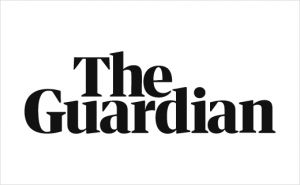
(This post originally appeared on The Guardian)
According to a recent study from the Kaiser Family Foundation, annual premiums for the average employer sponsored health plan are now almost $21,000, a 5% increase from the prior year, with employers (56% of them are small businesses) covering about $15,000 of the bill.
For small business owners, healthcare benefits present a huge challenge.
By not offering any options, we put ourselves at a significant disadvantage to those employers that do, particularly in these times of tight employment. But offering – and paying for – healthcare can be a prohibitively expensive decision for many small firms.
So what to do?
The Trump administration has recently resuscitated a not-so-new solution: healthcare reimbursement plans, or HRAs.
An HRA allows employers to contribute money to their employees’ accounts so that they can use the funds to purchase healthcare on their own in the individual marketplaces. The money contributed is not taxable to the employee and the employer can take a tax deduction for the contribution. Any unused portion of the account may be carried forward to subsequent years, just like a retirement account.
HRAs have been around for a long time, but they were effectively neutralized by the 2010 Affordable Care Act. Now a new rule issued back in June by the Departments of Health and Human Services, Labor and Treasury aims to reverse that and goes into effect on 1 January.
According to some, it could be a game changer for many small businesses.
“Many employers would love not to have to bear the administrative burdens of running a traditional health plan, and all are looking for ways to keep health costs down,” Michael Kolber a partner at Manatt Health, a healthcare advisory and compliance firm, wrote in the Hill. “If millions more people join the individual market through HRAs, these plan design features could change to look more like conventional employment-based coverage – or HRAs may further incentivize lower-premium plans, reinforcing the need for less comprehensive plans.”
Steve Wojcik, a vice-president of public policy for the National Business Group on Health, also believes that the new HRA ruling may be a good option for small employers, particularly those that can’t afford to offer group coverage. “It will allow them to help employees who go out and get coverage on their own and they can help out with premiums,” he told UPI. “That’s how it will be used in the short term.”
But before we get too excited, small business owners will need to digest some hard facts.
For starters, it’s not as if we’re going to immediately cancel our existing healthcare plans on 1 January. Both employers and workers will need to better understand the pros and cons of HRAs as they pertain to their own individual healthcare and it’s a fair bet that many either won’t know where to go to educate themselves or be too unsure and leave well enough alone. This will take time.
Secondly, there’s the effect on the individual market. “If employers were able to ‘dump’ their high-risk employees into the individual market through an HRA (with the goal of reducing their own group health plan costs), it could have significant consequences for the individual market risk pool,” writes Katie Keith on Health Affairs. “This could result in worse overall risk profiles and lead to higher premiums, higher federal outlays for premium tax credits, and a higher uninsured rate.”
But most importantly – at least for myself and other small business owners – is that this is not law. The ruling – which comes from a Trump Administration executive order – is just that: a ruling. In fact, it just reverses prior guidance limiting HRAs from when the Affordable Care Act became law. The ruling can easily be overturned through a similar executive order by one of the president’s opponents, assuming he loses the next election. Which means that all of this hoopla could be for naught within a year of it becoming effective.
If HRAs do catch on with small business after 1 January then the government – regardless of who’s leading it – will have more incentive to leave it alone. At the very least, it could be a viable option to control our healthcare costs, at least in the short term.

